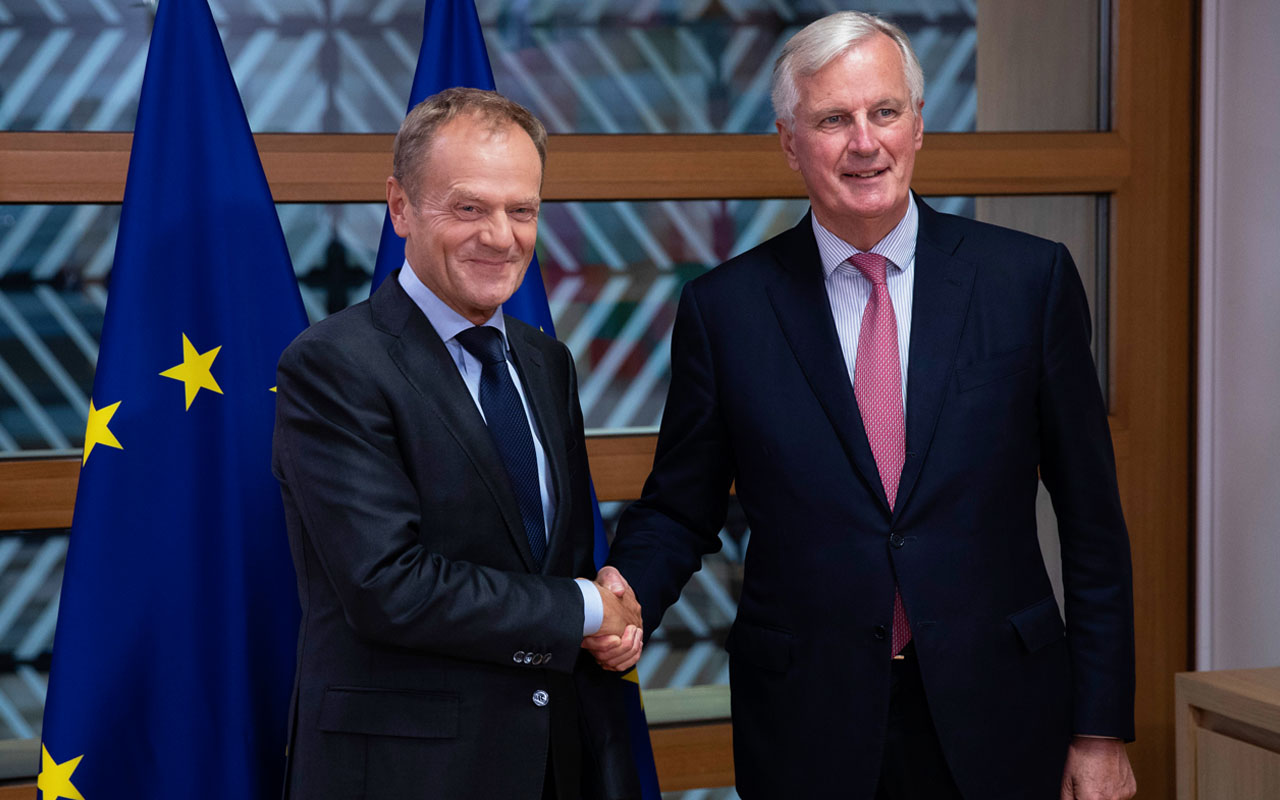
When European Union leaders meet this week in the Austrian Alps, they will discuss how to clear both the last hurdles to a divorce deal and to develop a plan for future ties, he said.
“We will discuss how to organise the final phase of the Brexit talks, including the possibility of calling another European Council in November,” he said, in a letter inviting the 28 leaders to the informal summit.
The leaders who make up Tusk’s European Council had been aiming to strike a Brexit deal at a scheduled October summit, but now seem to be on course to hold another last-ditch get-together in November.
This would still give the British, European and member state parliaments enough time to debate and ratify the terms before the end of March, when Britain would otherwise crash out without a plan.
“Let me recall that limiting the damage caused by Brexit is our shared interest. Unfortunately, a no deal scenario is still quite possible. But if we all act responsibly, we can avoid a catastrophe,” Tusk wrote.
Concerned about safeguarding the Irish peace deal, he also stressed the need to find ways to ensure “there will be no hard border in the future” between Ireland and British Northern Ireland.
EU officials and many British experts are worried that a no-deal Brexit would damage economic and financial ties between the world’s biggest trading bloc and one of the world’s largest economies.
Chancellor Sebastian Kurz of Austria — which currently holds the bloc’s six-month rotating presidency — will open the two-day summit on Wednesday evening in Salzburg.
He will host a dinner where British Prime Minister Theresa May briefs her EU counterparts about the state of talks between her negotiator Dominic Raab and Europe’s Brexit pointman Michel Barnier.
Tusk said the 27 other leaders would meet on Thursday without May to discuss a statement of intent on future relations with Britain, which is to be announced along with the Brexit divorce deal.
‘Level playing field’
EU diplomats warn that British demands for partial single-market access could undermine “the level playing field” if Britain refuses to stick to EU health, labour and environment standards and seeks to make exports like steel cheaper.
One European diplomat told AFP he still expects May to seal a deal even though her own “Chequers” blueprint crosses European red lines and has angered hardline Brexiteers in her own Conservative party.
A senior EU official told reporters it was possible the sides may settle on arrangements that would include specifics, but leave enough wiggle room that could be clarified during a transition period.
Britain has set March 29, 2019 as the date for its withdrawal in line with its voters’ shock decision in the June 2016 referendum to leave the EU.
The two sides have since tentatively agreed to a transition period through 2020 to allow businesses and others to adjust to Brexit.
But the senior official reiterated Barnier’s demand for a legal backstop on Ireland.
The EU has proposed that Northern Ireland stay aligned with the remaining 27 bloc members after Brexit as part of a “backstop”, or insurance policy to avoid the reimposition of border checks.
Irish border deadlock
But Britain, fearing the EU proposal would break up its territory, has suggested instead that the whole country remain aligned with the EU in certain areas, but only until the end of 2021.
Deadlock on the Irish border has fuelled concerns Britain may leave without securing a deal, cripple its economic and finance sectors and create food shortages and giant traffic jams near ports.
In August, May played down the consequences of a no-deal when she quoted World Trade Organization director general Roberto Azevedo as saying it would “not be the end of the world.”
But the International Monetary Fund warned on Monday that such a scenario would inflict “substantial costs” on the British economy.
Aside from the travails of Brexit, the bulk of the summit will tackle migration and security.
Tusk said the summit will try to end “the mutual resentment” of recent months after Italy’s populist government turned away rescue ships with African migrants aboard to force other member countries to share responsibility for them.
[ad unit=2]



